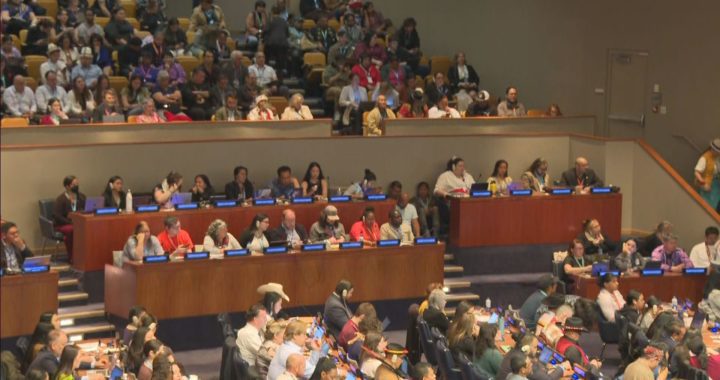
Cayleah, 27, above, says had been trying to get out of her long-term care him for three years before a COVID-19 outbreak in the home. Submitted photo.
A 27-year-old disabled woman who has been living in a Toronto long-term care home for several years says she tested positive for COVID-19 over the weekend.
“I don’t want to die,” said Cayleah Lamarsh, who is non-status and identifies as Ojibwe like her late mother.
Lamarsh told APTN News two weeks ago that she felt like a “sitting duck” confined to the home that had its first confirmed case of the virus in early April.
That number has been growing ever since – from a handful to over 30 and now sits at 67 residents and 12 staff members who have COVID-19 in Midland Gardens Community Care, a for-profit home owned by Sienna Senior Living, which publishes the data on its website.
“I was so scared when I found out it was COVID,” said Lamarsh.
She is also fighting sepsis, a condition caused by an infection in the body.
There have been over a 1,000 deaths attributed to the virus in long-term care homes in Ontario. The province announced Tuesday there will an “independent” commission into the state of long-term care beginning in September.
A freak accident left Lamarsh paralyzed from the waist down a few years ago. She also suffers from temporal lobe epilepsy and other ailments that worried her when she thought of getting the virus.
She said it feels like an elephant is sitting on her.
“I’m so weak. I could not even eat Jell-O,” she told APTN from her hospital bed over the weekend.
Lamarsh told APTN she is the youngest of 61 residents on her floor. The oldest is 105 years old.
While long-term care homes are predominantly for seniors, the province said there were 76 people between the ages of 21-29 in the homes as of Dec. 31, 2019, compared to more than 77,000 overall.
Lamarsh said she’s on a long waiting list for an assisted-living apartment that she feels would better suit her needs and age.
Lamarsh said she feels abandoned in the long-term care system, much like she was at two years old when she went into the child welfare system.
She became a Crown ward at four years old under the care of Family and Children’s Services Niagara.
At five, she was diagnosed with PTSD after bouncing around foster homes.
After a failed adoption, Lamarsh said she was put in group homes at eight years old.
It just got worse from there.
She would continue to bounce around until she aged out of care at 18.
“My files say abandoned all over them,” said Lamarsh, who grew up in care not knowing her mother was Ojibwe.
It wasn’t until she was 19 that she found out about her ancestry.
She had aged out and was in what’s known as extended care maintenance, a program that helps aged out kids receive funding for housing until 21.
It was then that she began receiving help from an Indigenous child welfare agency in Toronto.
“Someone at Native Child and Family Services said they knew my mom,” said Lamarsh, who said she hasn’t tried to obtain her Indian status.
“I’ve honestly been more consumed with surviving and getting out of here.”
Now she is fighting the coronavirus.









